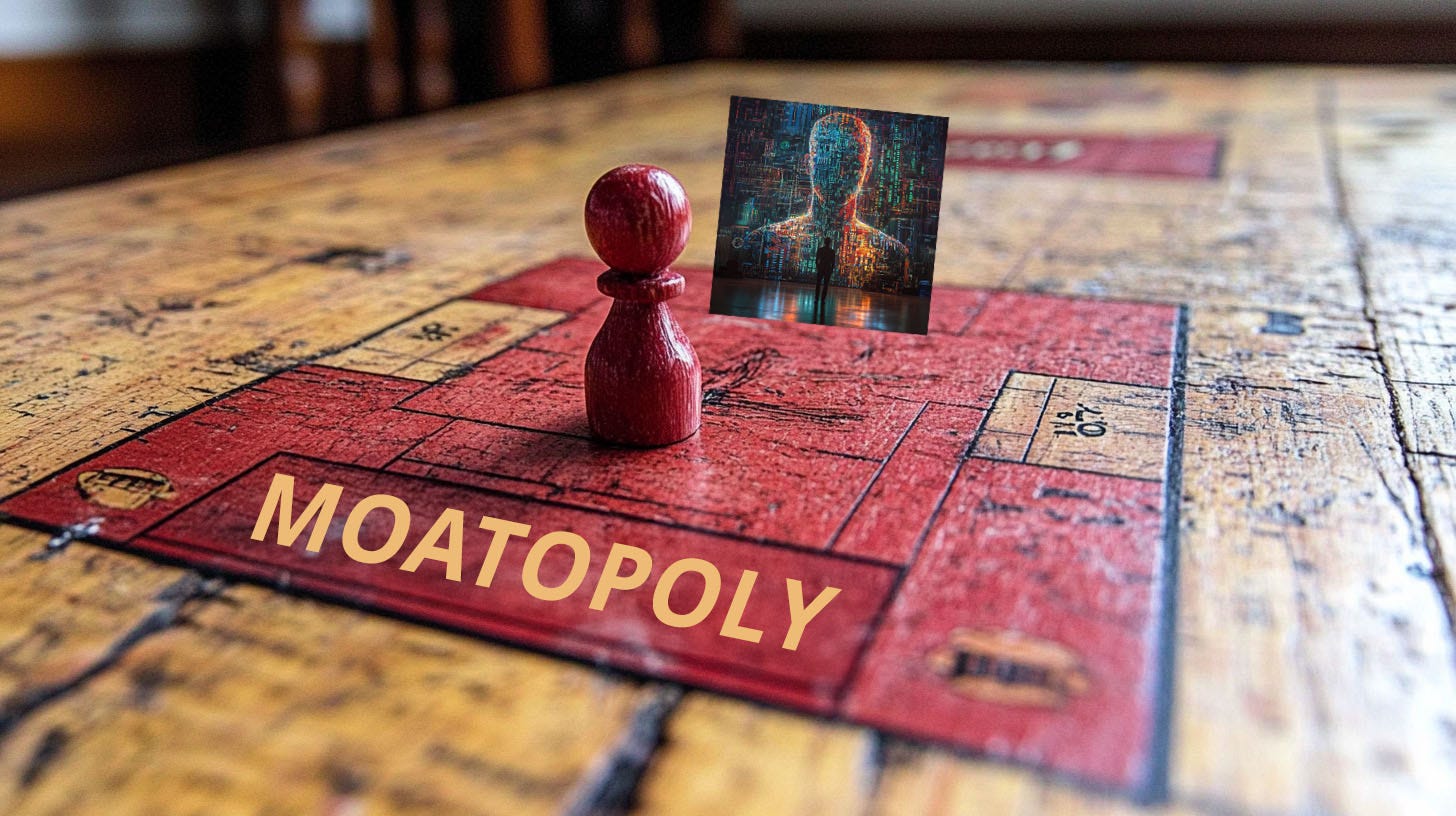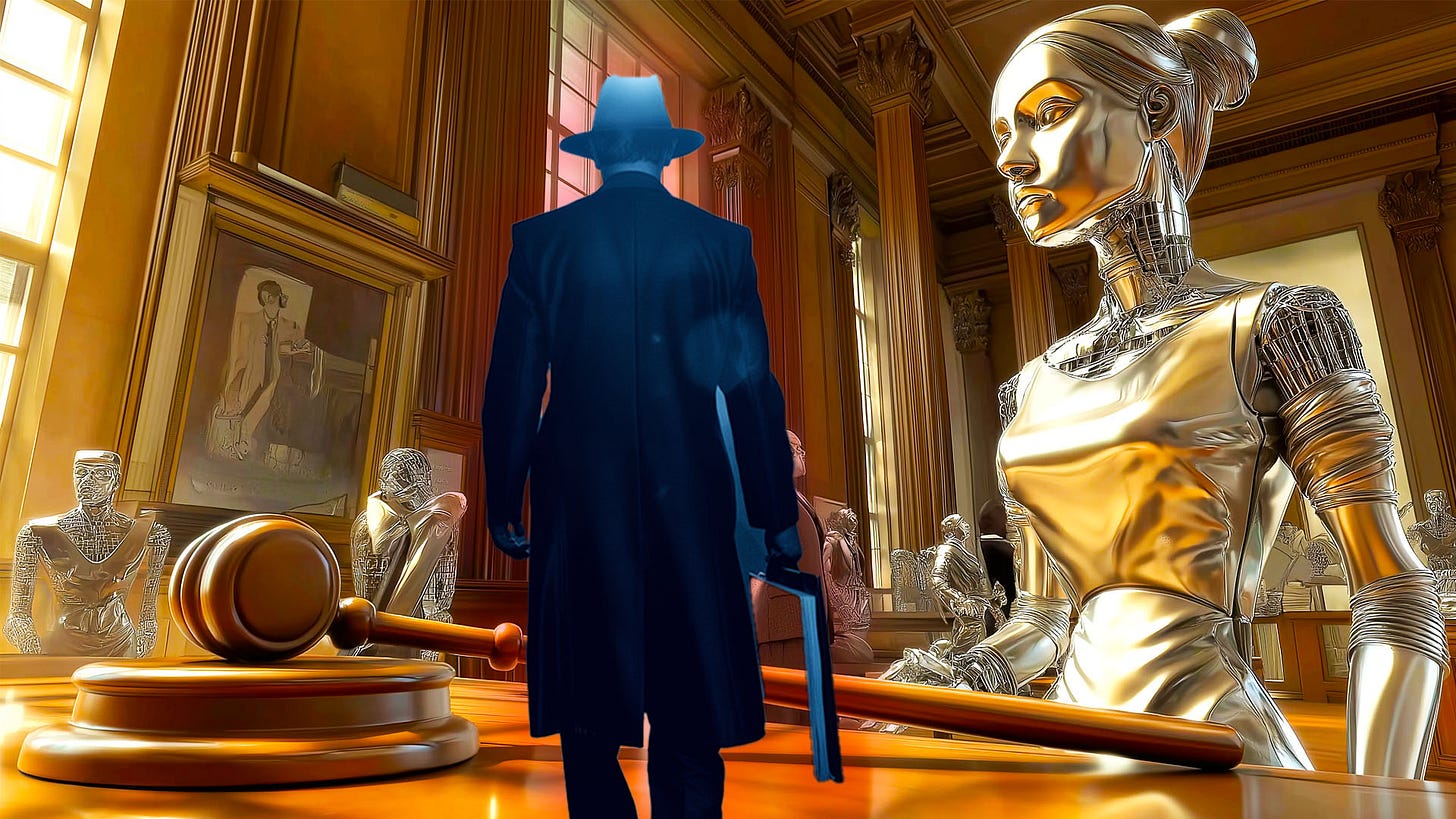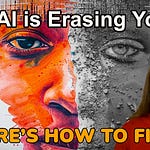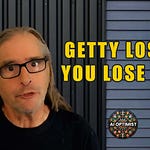I'll never forget the morning of Friday, May 9th - maybe the most “brazen” power move I've seen in the AI vs. creators battle yet.
A bombshell copyright report drops, standing up for copyright rights, and 24 hours later?
The authors get fired. Coincidence? Not a chance.
This isn't some boring government report - this is the legal bedrock for whether artists, writers, and musicians get paid when AI uses their work.
I'm oddly witnessing the U.S. Copyright Office becoming a voice of reason in a dynamic game of power, money, and control.
The Great AI Copyright Heist
Here's the thing about AI: there's nothing small about it.
If this US Copyright report is allowed to stand, it would answer a whole lot of questions at the center of ongoing lawsuits.
Many would take this report and run straight to court with it. This would really challenge everything about AI in the U.S. — from ChatGPT to the smallest developer — by asking one fundamental question:
What's your training data, and did you have permission to use it?
I'm shocked — first the U.S. Copyright Office releases this report months ahead of schedule, and then the president's office did something equally extraordinary to the Copyright Office.
There were two power plays happening at the same time.
So today I'm breaking down:
Why it terrifies AI companies
The overnight purge that followed
What this means for your creative work and AI strategy going forward
The Copyright Heist: Who Did It?
Was it Big Tech who took all the content in the first place without asking permission?
Was it the government — either the U.S. Copyright Office trying to seize control by releasing this report before they got fired, or the U.S. administration just "following protocols" by bringing in new people?
And when we look back on this moment, I think we'll find the AI Copyright Heist wasn't committed by the usual suspects.
Whether you're a creator whose work is being used without permission or a business building on AI, you need to understand this isn't just about politics — it's about money. Billions of dollars.
With the release of this report early, and then 24 hours later yanking out the person who wrote it... Creators, this report strongly favored you.
And AI developers, if this report just disappears, it's a massive win for your business model.
The report was scheduled for January 2026. It arrived in May 2025. And then the leadership got sacked. That's not normal.
The question isn't whether this is political — it's how big the economic impact will be and who's going to pay the price.
That report is in the public's hands now, but for how long?
The Surprise AI Gift to Creators
The Unexpected Early Arrival
How did this U.S. Copyright Office Part 3 report—not due until January 2026—see the light of day in May 2025?
Part 1 came out in July 2024 about digital replicas and deepfakes. It focused on stopping the misuse of celebrity and political images— widely welcomed.
Then in January 2025, Part 2 addressed copyrightability: can we copyright AI-generated content?
But Part 3 wasn't expected for nearly a year.
The US Copyright Office (USCO) is not a legal institution. It's part of the legislative branch. USCO doesn't have anything to do with creating laws or saying "this is real."
These are guidelines and recommendations that the government and the courts take very seriously.
This report wasn't supposed to exist yet. January 2026 was the target. So why rush it out?
Because someone likely knew what was coming. After the Librarian of Congress—Dr. Carla Hayden whose responsibilities include managing the U.S. Copyright Office—was fired, you might expect more heads would roll. It's the way of U.S. government these days.
In hindsight, it looks like Perlmutter's team raced to publish before they could be stopped.
What The US Copyright Part 3 Report Says
Training AI on copyrighted works "clearly implicates the right of reproduction"—that's legal speak for "yeah, you're supposed to pay for that."
The report distinguishes between research and analysis (potentially OK) and expressive uses (probably not OK).
The report rejects the tech industry's favorite "it's all fair use" argument. AI companies keep claiming their use is transformative, which would qualify for fair use.
The report says: not so fast. Whether something is transformative depends entirely on what you're using it for.
If you're creating images or content that competes with creators, it probably doesn't apply. If you're strictly into research and analysis, it might.
They also demolished the "it's just like human learning" defense. I've heard this argument at TechCrunch Disrupt and everywhere else—it's practically the AI party line:
"Humans learn by consuming content and creating new stuff, so AI should be allowed to do the same!"
The Copyright Office found that argument fundamentally flawed. A student doesn't learn that way—by ingesting hundreds of billions of pieces of data.
The scope and scale are way beyond human capability.
Most concerning for AI companies: the report acknowledges "market dilution." Here's what it says:
"Where a model can produce substantially similar outputs that directly substitute for works in the training data, it can lead to lost sales. Even where a model's outputs are not substantially similar to any specific copyrighted work, they can dilute the market for works similar to those found in its training data, including by generating material stylistically similar to those works."
This is huge—the report is saying that the market for creative services and industries will be diluted by AI.
Whether or not it's true, that's an economic impact the law needs to consider.
The Creator Windfall That Almost Was
If this report had time to take root, every publisher, music label, and creator organization would be waving it in court cases.
They're waiting because they don't have anything concrete to go on except futuristic projections. This makes it pretty concrete.
If you have to license books, music, and art for training, the economics of AI completely change.
The entire model is built on free content—a false premise. They didn't ask permission, and neither side seems able to deal with that.
The two key takeaways from the report:
the purpose the AI is used for matters, and
economic/social impact cannot be ignored.
The Copyright Office essentially said: Yes, creators, you deserve compensation when your work trains AI—at least for certain types of AI models, including many of the dominant ones we know.
What we've learned is the U.S. Copyright Office said what really comes down to the AI and whether creators should be compensated is the purpose of the AI model.
And there are many different ones, and some should be able to use copyright content, others should not.
When The Men On The Chessboard Get Up And Tell You Where To Go
With this document out suddenly on May 9th, on Saturday, May 10th they fire Shira Perlmutter, the Register of the U.S. Copyright Office—the head of the U.S. Copyright Office.
Was this because of the leak? Was this just because they had previously fired the head of the Library of Congress, Doctor Carla Hayden, on Thursday night?
The Library of Congress manages or is responsible for the U.S. Copyright Office, that’s a connection.
That report didn't make people happy. And if somebody is putting out a report like that, they want it to get out there before they're gone.
Because given the pattern of the current U.S. administration, pretty much the purge happens and you move on.
So when the men on the chessboard get up and tell you where to go, and you just had this U.S. copyright report and your mind is starting to glow, go ask Shira. I think she'll know.
The Overnight Purge & Power Play
Timeline
Now, purge? Who knows? I mean, this is a purge of an old administration in a way.
And that happens every time.
Thursday, the Library of Congress librarian, Doctor Carla Hayden was fired. And the reasons given were DEI (which is diversity, equity, and inclusion—for those of you not in U.S. politics, it's a reason to get fired) and also because they put in books that were "inappropriate for children."
Though the Library of Congress is one of the biggest libraries in the world with collections all over the place—a ton of it is not suitable for children.
So that happened. Okay, Library of Congress. Then the report comes out on the morning right after that, May 9th.
Journalists digging into it and finding some sources—everyone's guesswork, really—but it certainly seems like the writing's on the wall.
Shira Perlmutter is not going to last if her boss doesn't last.
And this report, which is three months old, was actually released in an unfinished form. I forgot what their exact language was, but it's like "pretty much done except for the citations and finishing up."
I doubt that they actually felt that way, but also they had a chance to get this out before getting fired, and at least that put it out in the public eye.
Now here we are. And by the time this podcast gets out, they may remove the report, but it really doesn't matter. People have downloaded it, and it's had an impact in a way.
I wouldn't call it a leak, but it certainly was a "wow, we're getting out of here, we want this to matter" type of situation.
Thursday: Librarian of Congress fired.
Friday: Report published.
Saturday: Copyright Register fired.
Monday: What happened.
This wasn't subtle. This wasn't even trying to look normal. This was a power move with billions at stake.
The Political Accusations
Representative Joe Morelle of New York says it has a lot to do with AI, and he blames it on Elon Musk. Surprise, surprise. He called it (and I'll read his quote),
"a brazen, unprecedented power grab with no legal basis.
It is surely no coincidence he acted less than a day after she refused to rubber stamp Elon Musk efforts to mine troves of copyrighted works to train AI models."
Rep. Joe Morelle (NY-25)
I've looked at the link he had to the last part of the document. I haven't seen where that's actually validated or what they know, so that's sort of conjecture.
I mean, what a Game of Thrones around copyright!
For AI, this is why copyright is not some boring old concept—this is what's going to impact that data that went into AI models.
If this report was allowed to stand or is allowed to stand, its influence on court cases, decisions, regulations, Congress, laws, everything related.
It says we need to look at compensating creators and we need to respect creative industries because this will have an economic impact.
The Tech Industry's Silent Victory
Notice which tech leaders aren't commenting on this? The ones with the most to lose if licensing becomes the norm.
The economics here are simple: free training data = higher profits. Licensed data = sharing the wealth.
This is about who pays for the raw materials of AI. If oil companies could get away with not paying for oil, they would.
AI companies are trying not to pay for their raw material—creative works.
The report technically exists, but without its champions, will it influence anything?
Courts might still consider it, but its authority has been undermined.
We might see it rescinded or contradicted by future leadership. The damage is already done to its credibility and influence.
The Confusing Nature of This Move
The Copyright Office isn't even part of the executive branch—it's under the Library of Congress.
The legality of these firings is being questioned. There's no precedent for this kind of intervention in copyright administration. If that’s what this is….
This is taking a sledgehammer to institutions that have historically been independent.
Is that sledgehammer the government, Big Tech... seems like the two most likely suspects, right?
What Happens to the Report Now?
This move signals to every AI company:
"You might not need to pay for training data after all."
For creators already struggling with AI content flooding markets, this removes a potential lifeline.
We're talking about the economic foundation of creative industries being decided by administrative action.
The rules of the game are being rewritten before our eyes—and not in creators' favor.
Or will they just fire her, put out a new document, and move on?
But creators, if you really wanted an opening, I told you this year would be the year.
I had no idea what would happen—this fast surprise. But it's moving. And if this report just goes away and we all forget it, we're missing a major statement saying creators deserve compensation.
AI developers, you should be listening.
The Real AI Copyright Heist
Was it big tech taking that content in the first place and putting it in? I can see that argument.
Was it government regulation taking back this document?
If that proves to be true, we don't know that yet. But if any pattern is sure, I don't think that document is going to last or hold much power.
Or is it something else buried in that document that might give us a hint of where the AI Heist might be coming from?
The Twist: Let the Market, ie Big Players, decide?
Listen to this buried deep in the report:
"In those areas where remaining gaps are unlikely to be filled, alternative approaches, such as extended collective licensing should be considered to address any market failure."
The market should take care of it—through licensing and extended collective licensing.
Ouch. A great report standing up for creators in a great way, then at the end it says: leave it up to the market. And if that market is run by big tech...
So big Tech, if it's relying on the market model and AI licensing, it's a game of volume, of fame, of elitism.
And who else is going to be able to afford content in that scenario?
Only companies with billions and billions of dollars. How do the smaller players play?
The Real Copyright Heist Was Hidden In Plain Sight
Music licensing happens. Musicians stop making money. This kind of licensing happens?
The market threatens the already threatened creative market that the US Copyright Office seeks to protect.
And if that document is quashed, buried, bamboozled... This isn't the end of the story.
This document gave me hope on May 9th. And then I read it and really went into it.
We just have to make sure that just relying on free market principles and capitalism... Okay.
Don't we have a government for a reason to help?
Maybe not equal the playing field, but not how we're playing right now with big tech.
If the AI licensing model is left up, as the US Copyright Office says, to the market, big players will gain, big tech will gain, and we'll all get left behind.
And I thought I was supposed to be the AI optimist!
The Path Forward
A healthy AI ecosystem NEEDS to compensate creators. Not just because it's fair, but because it's sustainable.
If we drain the creative economy to feed AI, we'll run out of quality content to train on. We need human creativity to keep flowing.
The companies that figure out how to properly license training data aren't the losers—they're the ones building sustainable businesses that won't collapse when the legal hammer eventually falls.
For creators: Watch this closely. If this report is official, watch the courts.
For AI companies: This reprieve might be temporary. Courts could still rule against you, and the EU and other regions are moving ahead with clearer rules.
For businesses using AI: Understand that you're building on legally uncertain ground.
The data powering your tools may have been acquired in ways that courts might eventually find problematic.
This isn't the end of the story—it's just the beginning of a much bigger battle over the economic foundation of AI.
RESOURCES
US Copyright Office:
Copyright and Artificial Intelligence, Part 3: Generative AI Training Pre-Publication Version
Five Takeaways from the Copyright Office’s Controversial New AI Report
Trump fires Copyright Office director after report raises questions about AI training
Morelle’s Statement on Abrupt Firing of Shira Perlmutter, Register of Copyrights
Librarian of Congress Carla Hayden Fired by White House
Ousting of Librarian of Congress Dr. Carla Hayden Sends a Message: Comply or Be Fired



















